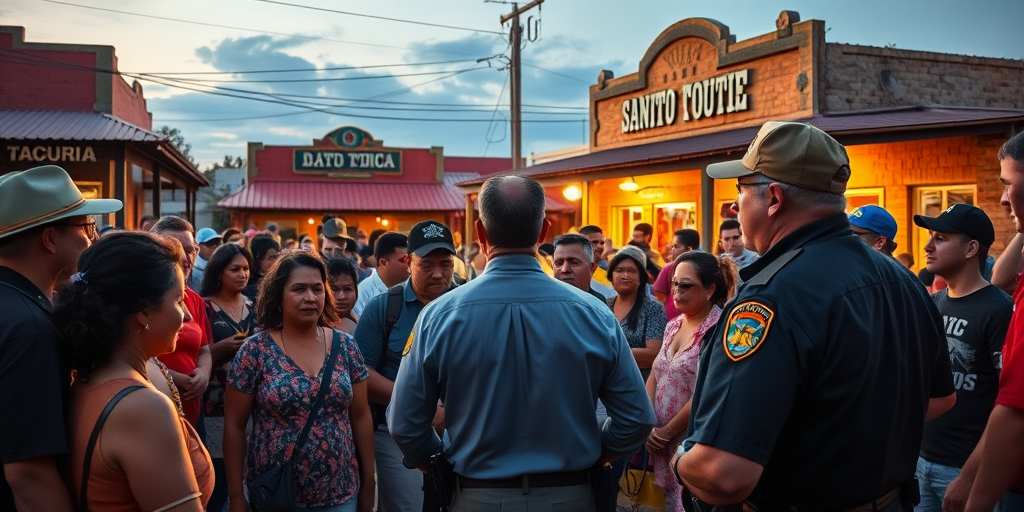**Mexican National Accused of Assault During Dramatic San Benito ICE Raid**
**Unfolding Drama:**
A San Benito taqueria became the center of controversy as a Mexican national, Maria Isabel Cruz-Salas, was accused of kicking an ICE agent during a routine raid. This incident unfolded amid broader immigration enforcement actions, emphasizing ongoing tensions and challenges within the Rio Grande Valley’s immigrant communities.
**Contextual Background:**
The raid occurred at Taqueria El Mante, with law enforcement conducting what they termed a “lawful enforcement operation.” Cruz-Salas’ alleged assault on a Homeland Security Investigations (HSI) agent during this raid has spotlighted the complexities and human element of immigration enforcement procedures. At her upcoming court hearing on June 18, Cruz-Salas faces up to eight years in prison and a substantial financial penalty if convicted.
**Voices from the Community:**
This event has stirred debate among Valley residents and advocates for immigrant rights. Alejandro Muñoz, a local activist, expressed concern over the increasing frequency and intensity of such raids, stating, “These operations create fear and uncertainty within our communities. We must strive for an approach that balances enforcement with compassion.”
Conversely, Victoria Garza, a proponent of strict immigration measures, argued, “The law must be enforced to maintain order. Incidents like this demonstrate the risks officers face while performing their duties.”
**Impact on the Rio Grande Valley:**
This incident underscores the significant local impact of national immigration policies. In the Valley, home to a diverse and large immigrant population, such actions infuse daily life with tension, influencing everything from local commerce to community dynamics. The ripple effect of increased enforcement is evident in both business closures and a strained sense of security among immigrants.
Moreover, this confrontation coincides with broader regional challenges, including the aftermath of severe storms that have caused widespread destruction and power outages across Hidalgo County and other areas.
**Connections and Ongoing Issues:**
The incident at Taqueria El Mante draws parallels with previous enforcement actions in the region, highlighting continued concerns regarding treatment of immigrants and the operational methods of ICE and related agencies.
In the wider context, the Valley continues grappling with myriad issues, from devastating storms affecting infrastructure and housing to economic challenges exacerbated by homelessness in cities like Pharr. These multifaceted issues demand comprehensive local strategies to address both immediate and systemic problems.
**Potential Future Implications:**
Looking ahead, Cruz-Salas’ case could serve as a bellwether for future interactions between ICE and the Rio Grande Valley communities. Depending on its outcome, it might influence policy discussions and local activism, pushing for reforms and more nuanced approaches to immigration law enforcement in regions with significant immigrant populations.
**Resources for Affected Residents:**
Local organizations offer resources and support for those potentially affected by similar incidents. The South Texas Pro Bono Asylum Representation Project provides legal assistance, ensuring residents are aware of their rights and options. Furthermore, community advocacy groups like LUPE (La Unión del Pueblo Entero) offer support and guidance for immigrant families navigating these turbulent times.
In conclusion, as these events unfold, they reflect the deep-seated complexities and urgent needs within the Rio Grande Valley, urging residents, officials, and organizations to collaborate and foster a community environment that is resilient yet compassionate. The proposed change in tax policy complements these efforts, aiming to secure a more prosperous and equitable future for all Valley residents. Through collective engagement and ongoing dialogue, the Valley continues to navigate its challenges with resolve.







